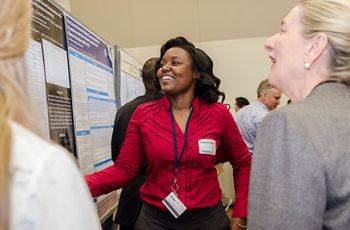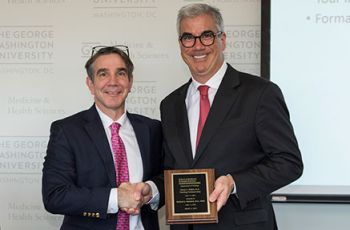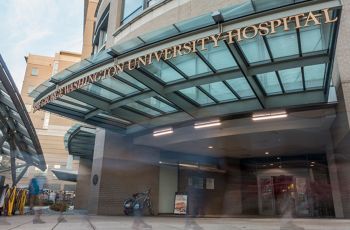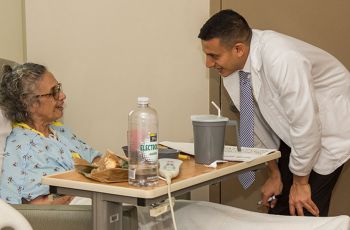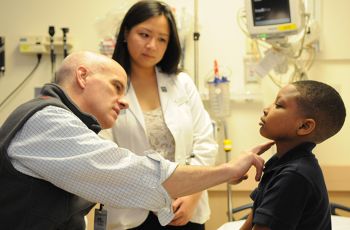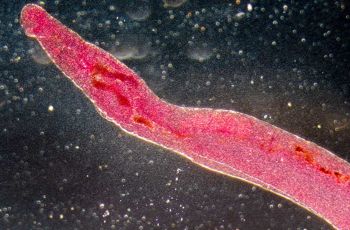Katherine Dvorak
Camara Jones, M.D., Ph.D., M.P.H., the immediate past president of the American Public Health Association, spoke to SMHS students and faculty about racism in health care and its impact on the wellness of the United States in a recent lecture.
On the second day of the 22nd annual GW Research Days, School of Medicine and Health Sciences (SMHS) students had a chance to show off their work outside the classroom to their peers and the SMHS community.
Richard A. Santucci, M.D., FACS, specialist-in-chief of urology at the Detroit Medical Center, gave two keynote talks at the fourth annual Harry C. Miller Visiting Professorship Symposium and Awards Luncheon.
The noise of the crowd grew to a deafening roar in Ross Hall Room 101 of the GW School of Medicine and Health Sciences (SMHS) at the Announcements that 100 percent of the Class of 2017 will begin residency training this summer.
Five winners were chosen for the annual George Washington University (GW) Hospital Innovation Awards, a competition open to anyone working at the hospital.
Burnout among physicians, residents, and medical students is a growing issue, but according to Lotte N. Dyrbye, M.D., M.H.P.E., professor of medicine and of medical education at Mayo Clinic, there are things clinicians can do to achieve better well-being.
During the Gold Humanism Honor Society Solidarity Week for Compassionate Patient Care, students from SMHS could be found at GW Hospital writing posters about the importance of humanism in medical care and learning about patients’ interests.
Standing on the stage in GW's Jack Morton Auditorium on Feb. 7, Senators Bernie Sanders (D-Vt.) and Ted Cruz (R-Texas) debated the state of the U.S. health care system — with Cruz calling for total repeal of the Affordable Care Act, and Sanders making his case for a single-payer health system.
Stephen J. Teach, M.D., M.P.H., chair of the Department of Pediatrics at Children’s National Health System, talks about the relationship between allergies and asthma and the future in asthma care.
Researchers at GW's School of Medicine and Health Sciences investigate how to manipulate the genes of the schistosome parasite to disrupt its ability to survive and infect people.

